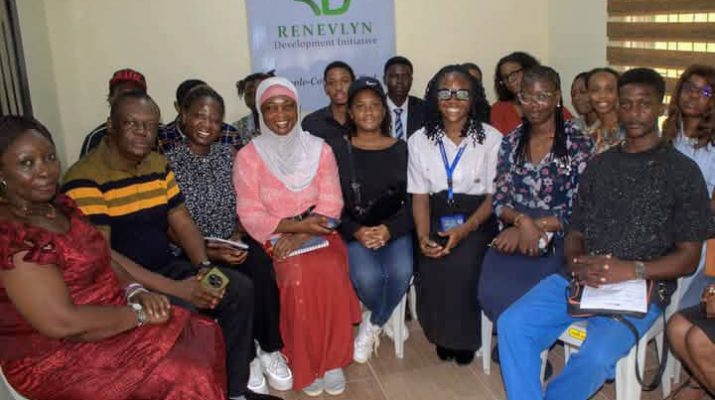To avoid chronic depression that leads to suicide, drug addiction, sexual promiscuity and other social vices, the Nigerian youth need to develop resilience to the extent that they become the leaders that they are meant to be in the interest of the country and entire humanity
By Edu Abade
With the socio-economic pressure that comes with endless search for job after graduating from the university following the high rate of unemployment in the country, the Nigerian youth has had to contend with chronic depression, suicide, drug addiction, yahoo-yahoo syndrome, sexual misbehavior and other social vices.
The trend has become so worrisome that a report by the National Bureau of Statistics (NBS) showed that over 25 million Nigerian youths under 30 years of age are actively searching for jobs, just as young people constitute over 60 percent of Nigeria’s unemployed population.
Also, the World Health Organization (WHO) estimate places the suicide rate for Nigeria at 17.3 per 100,000 population, as against the global average of 10.3 per 100,000 population-figures that not only represent numbers, but also represent dreams deferred, energy untapped and potentials unmet.
This was the verdict of a mini-town hall meeting organized by the Renevlyn Development Initiative (RDI) with the theme: Building Resilient Youth in a Hostile World in Lagos.
In his opening remarks, Executive Director of RDI, Philip Jakpor said, “We decided to organize the discussion on building youth resilience in a hostile world because of the challenges we see young people facing and the fact that most of them do not have support structures.
“So the discussion essentially draws on the experience of experts who can relate with the experiences these young people are passing through and proffer solutions that go as far as making these young people understand that they are unique and can chart their part if they can believe in themselves and acquire skills that will make them indispensable in Society.
“This will help them build confidence and see themselves not as casual bystanders but as active participants or instigators of the kind of world they dream about,”
In her welcome address, Project Support Volunteer for RDI, Dominion Amupitan, said the theme of the discussion could not have been more timely, adding, “In today’s Nigeria, being young feels like navigating a storm-battling unemployment, skills mismatch, peer pressure and even depression. For many, the journey from classroom to career is filled with roadblocks.
“But we are not here to despair, we are here to act. The concept for this gathering is rooted in resilience-not just the ability to survive the storm, but to emerge stronger, wiser and more capable of shaping the future. Resilience is what transforms a struggling youth into a visionary leader. It turns limitation into innovation and hardship into strength.”
She explained that the meeting was not just a conversation, but a call to action with the ultimate goal of building a network of resilient young Nigerians who are emotionally strong, leadership-driven and solution-focused.
“Through the inspiring stories from our guest speakers, and the robust discussions that would ensue, we want to be equipped, not just to survive in a hostile world, but to thrive, lead and influence,” she stated.
A motivational speaker and youth empowerment enthusiast, Emeka Odiaka, who addressed the youth participants virtually from Australia, stressed that building a resilient youth population in a hostile world is not a one-time effort, but a continuous, collaborative process involving families, schools, communities and governments.
He explained that building a resilient youth population is about equipping young people with inner strength, external support and hope for the future-regardless of the difficulties they may face, adding that the principles of building a resilient youth population include positive relationships, emotional regulation, a growth mindset, sense of purpose, autonomy and empowerment, cultural identity and belonging as well as access to a robust support system.
Odiaka pointed out that to achieve resilience, the youth have a role to play through self-awareness and reflection, building healthy relationships, embracing a growth mindset, taking initiative, practicing self-care, deploying advocacy and voice, resisting negative influences and supporting peers.
To develop resilience and realize their dreams, Odiaka urged the youths to embrace a safe and supportive environment with predictive routines, clear roles, warmth and consistency, learn life and coping skills on emotional intelligence, financial literacy, communication, leadership and problem solving skills.
Other strategies, he said include learning resilience from adults on how to handle stress, setbacks, adversity and happiness, as well as share personal experiences of overcoming challenges, among others.
In her intervention, Executive Director of Child Health Organization, Vicky Uremma, who spoke on Building Emotional Intelligence Among Young People, said there was the need for early intervention and introduction of emotional intelligence (EI) skills and concepts at a young age to promote resilience and regulation.
She also stressed the need for role modeling, social-emotional learning through self-awareness, self-management, social awareness, relationship Skills, responsible decision-making, as well as practice and feedback that ensures provision of opportunities for young people to practice EI skills and receive feedback.
“Developing Emotional Intelligence in youth is essential for building resilience, fostering positive relationships, and achieving academic and personal success. By teaching EI skills and promoting a supportive environment, we can help youth navigate the challenges of a hostile world and thrive.
Also, Emotional Intelligence can have a profound impact on the lives of young people, offering numerous benefits and opportunities for growth and development.
“While building resilience in youth is essential for helping them navigate the challenges of a hostile world. By developing EI in youth, we can empower them with the skills and strategies needed to thrive in all areas of life and by providing supportive relationships, teaching life skills and fostering a positive environment, we can help youth develop the resilience they need to thrive,” she stated.
On her part, Project Officer of RDI, Ifeoluwa Adediran Komolafe, who addressed the participants comprising aspiring lawyers, Foreign Exchange (Forex) dealers, real estate developers, software engineers and developers, as well as civil society advocates, among other promising professionals, stressed the importance of mapping out short and long-term plans for resilient and successful career paths, as they navigate the complexities of life.



